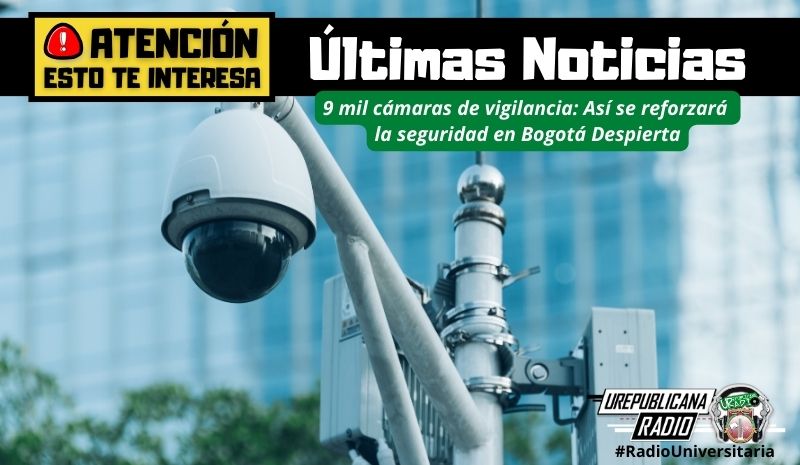The Procuraduría General de la Nación has launched a preliminary inquiry into officials at the Secretaría Distrital de Seguridad, Convivencia y Justicia in Bogotá regarding alleged irregularities in contract SCJ-1904-2023. This contract, valued at nearly $14.339 million, was signed with the Consorcio LPR SCC 2024 for the installation of 200 LPR (License Plate Recognition) surveillance cameras across the city.
“Only 50 cameras have been installed out of the planned 200,”
stated the Ministerio Público, highlighting a physical progress of 68.5%, raising concerns about fulfilling contractual obligations and transparent use of public funds for citizen security.
The Procuraduría identified various issues that led to disciplinary actions, including inadequate planning, unforeseen technical failures, three extensions and suspensions without budgetary support, and contractual disputes exceeding $2 billion. Of particular concern was the replacement of external oversight with internal supervision by the same department without substantial technical justification.
A district-level investigation has been initiated to ascertain if these actions constitute disciplinary offenses and pinpoint individual accountabilities.
Expert analysis suggests that
“such irregularities raise questions about procedural adherence and lack of oversight.”
The focus remains on upholding preventive control measures to safeguard public resources allocated for bolstering security and enhancing citizen well-being in Bogotá.
The SCJ-1904-2023 contract aimed to strengthen the city’s surveillance infrastructure through the provision and installation of LPR cameras—highly precise technological tools enabling vehicle identification, data cross-referencing with judicial databases, and real-time tracking of vehicles involved in criminal activities.
Despite delivery on July 16, 2024, all 200 cameras remain unused in storage due to a delay surpassing five months beyond the initial August 5 installation deadline. Reports indicate that structural issues with project planning have persisted since last year when contractor requests were denied despite multiple suspensions and extensions left unresolved operational stagnation.
Councilwoman Diana Diago raised concerns over fundamental flaws in project development:
“This contract prioritized camera installation over essential city infrastructure needs.”
She urged Mayor Carlos Fernando Galán to take immediate action against bureaucratic hindrances obstructing timely solutions vital for combating criminal activities effectively within Bogotá.
Diago emphasized stringent oversight on contract execution while urging collaborative efforts with other district entities to streamline administrative bottlenecks impeding progress. The distribution plan targeted equitable camera placement across localities such as Kennedy (25), Fontibón (19), Engativá & Suba (17 each), Usaquén (18), and Tunjuelito (15).
However, insufficient installations thus far jeopardize contractual objectives hampering swift responses to criminal incidents throughout Bogotá’s neighborhoods.

